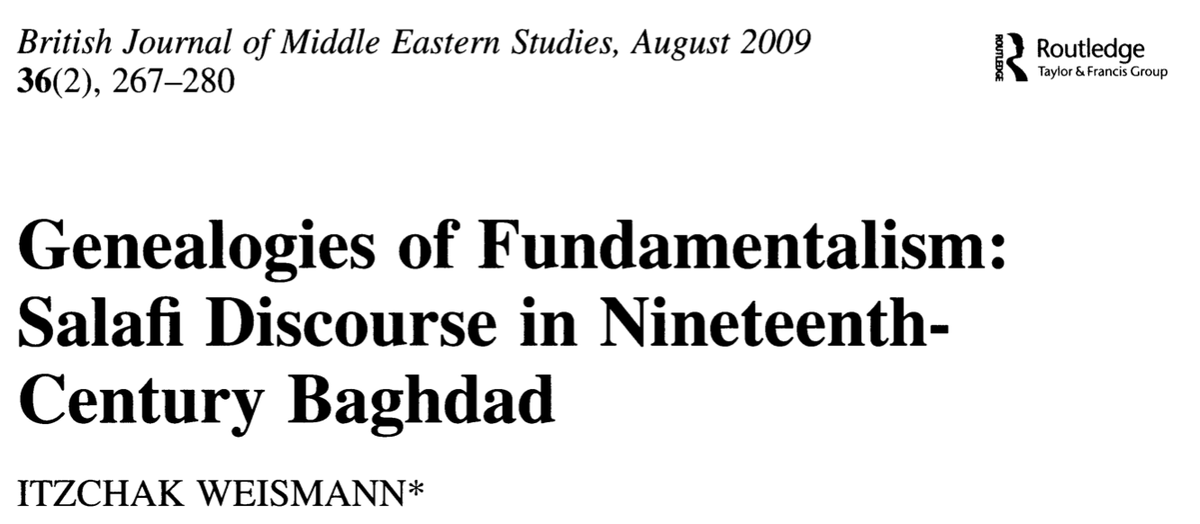So, why was Walid Saleh essential? His works were the first to address the ideological problems in our understanding of the history of tafsir. If you ask people about the most important tafsir ever written, the answer will probably be Tabari, with Ibn Kathir a good second. (1/7)
In his monograph on the tafsir of Tha’labi, Saleh showed we overestimate the importance of Tabari for the later tradition. Tha’labi may have been much more influential, but was subtly written out of the history of the genre, due to his incorporation of material that was (2/7)
In another study Saleh also shows how the tafsir of Maturidi draws upon very different sources than Tabari, and how the scope of the genre was much wider than Tabari shows in his selection: (3/7)
Tabari is indeed very consciously ideological in his selection, and is not as all-encompassing as often claimed. This ideological selection became specifically popular in the 20th century, which explains why he was embraced by such a wide audience. (4/7)
The same goes for Ibn Kathir: he only became a household name due to the efforts of Rashid Rida, who had it printed and spread with financial help from the Saudi’s in the 1930’s. Also Tabari was only first printed in 1904, and even considered lost for a long time! (5/7)
So, the main point in his scholarship is: the centrality of Tabari and Ibn Kathir to the genre is an ideological construct of the 20th century, but has become so pervasive that we all have come to believe in it. (6/7)
In my research I now try to understand how they became so central to the tafsir tradition, and how this was the work of a hand full of scholars and enthusiasts, among whom al-Qasimi, aided by the rise of print culture, and new conversations in religious journals. (7/7)

 Read on Twitter
Read on Twitter




